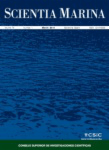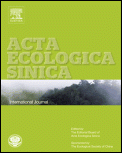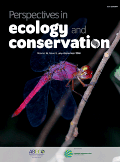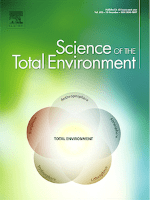
Ecologia Aplicada
Scope & Guideline
Bridging Theory and Practice for a Sustainable Future.
Introduction
Aims and Scopes
- Biodiversity Studies:
Research on the diversity of flora and fauna, including species behavior, population dynamics, and community structure, aimed at understanding ecological interactions and conservation needs. - Ecosystem Services Evaluation:
Assessments of ecosystem services, including water regulation, nutrient cycling, and cultural values associated with natural resources, to inform sustainable management practices. - Environmental Monitoring and Assessment:
Utilization of various methodologies to monitor environmental variables such as water quality, air pollution, and soil health, providing data critical for policy and conservation efforts. - Impact of Human Activities:
Investigating the effects of agriculture, urban development, and resource extraction on ecosystems, with a focus on mitigating negative impacts through sustainable practices. - Conservation Strategies:
Development and evaluation of conservation strategies, including community involvement and economic valuation of ecosystems, to promote biodiversity preservation.
Trending and Emerging
- Nature-Based Solutions:
Research focusing on nature-based solutions for environmental issues has surged, emphasizing the role of natural processes in addressing climate change and enhancing resilience. - Climate Change Impact Assessments:
A growing number of studies are examining the effects of climate change on various ecosystems, aiming to inform adaptive management strategies and conservation practices. - Ecotourism and Sustainable Development:
There is an increasing interest in the interplay between ecotourism and conservation, with research exploring how sustainable tourism can support biodiversity conservation and local economies. - Community Involvement in Conservation:
Research emphasizing the role of local communities in conservation efforts is trending, highlighting participatory approaches that integrate traditional knowledge with scientific research. - Bioremediation and Pollution Management:
Emerging studies on bioremediation techniques and their effectiveness in managing pollution in various ecosystems signify a shift towards innovative solutions for environmental restoration.
Declining or Waning
- Traditional Agricultural Practices:
Research on conventional agricultural methods and their ecological impacts appears to have decreased, possibly due to a growing emphasis on sustainable and innovative agricultural practices. - Historical Ecology:
Studies focusing on historical ecological baselines and changes over time have become less prominent, as current research trends favor contemporary assessments and immediate ecological applications. - Invasive Species Management:
Papers specifically addressing invasive species control and management strategies are less frequent, which may reflect a broader focus on ecosystem resilience and restoration rather than solely on invasive species.
Similar Journals

Inland Waters
Unveiling Insights into Freshwater ManagementInland Waters, published by TAYLOR & FRANCIS LTD, stands as a prestigious scholarly journal dedicated to the critical examination of freshwater ecosystems and their management. With an ISSN of 2044-2041 and an E-ISSN of 2044-205X, this journal boasts a remarkable Q1 ranking in both Aquatic Science and Water Science and Technology for 2023, reflecting its significant impact in the field. Researchers and professionals can benefit from its comprehensive coverage of cutting-edge research, methodological advancements, and policy implications concerning inland waters. Committed to disseminating valuable knowledge in a vital area of environmental science, Inland Waters aims to foster collaboration and promote innovative solutions for sustainable water management practices. As it continues through its converged years from 2012 to 2024, the journal remains an essential resource for those dedicated to advancing our understanding and stewardship of freshwater environments worldwide.

SCIENTIA MARINA
Exploring the Depths of Aquatic KnowledgeSCIENTIA MARINA, an esteemed journal published by the Consejo Superior Investigaciones Cientificas (CSIC) in Spain, focuses on critical studies within the fields of Aquatic Science and Oceanography. With an Open Access policy since its inception in 1998, this journal facilitates widespread dissemination of research findings, significantly enhancing accessibility for researchers, professionals, and students alike. Currently, SCIENTIA MARINA holds a Q3 ranking in both categories for 2023, demonstrating its commitment to advancing knowledge in marine and aquatic environments. With a convergence of research years from 1996 to 2024, it remains a pivotal platform for innovative research, encompassing various aspects of marine biology, ecology, and environmental science. The journal serves as an essential resource for scholars aiming to contribute to the understanding and preservation of marine ecosystems.

Acta Ecologica Sinica
Connecting researchers to drive ecological knowledge forward.Acta Ecologica Sinica, published by Elsevier, is a prominent journal in the field of ecology, with a strong focus on fostering understanding in ecological principles and their applications. Established in China, this journal holds an impressive Q2 categorization in both Ecology and Ecology, Evolution, Behavior and Systematics as of 2023, positioning it within the top tier of ecological research. With its Scopus rankings placing it in the 81st and 78th percentiles in relevant ecological domains, it serves as a vital platform for researchers and practitioners to disseminate findings that promote ecological sustainability. Although it operates under a traditional access model, its significant impact is underscored by its systematic convergence of key ecological inquiries across multiple years (2006-2008, 2014, 2017-2023). By engaging with the latest empirical studies, theoretical advancements, and methodological innovations, Acta Ecologica Sinica is indispensable for scholars dedicated to advancing ecological knowledge and addressing environmental challenges.

Theoretical and Applied Ecology
Innovating Research in Theory and PracticeTheoretical and Applied Ecology, an esteemed journal published by LLC PUBLISHING HOUSE, KAMERTON, is dedicated to advancing knowledge in the rigorous fields of ecology and applied ecological research. With the ISSN 1995-4301 and E-ISSN 2618-8406, this journal has established a firm foothold since its inception in 2017, converging impressive research and findings from the Russian Federation and beyond. Although currently lacking an impact factor and H-index, its Q3 ranking in Ecology and Ecology, Evolution, Behavior and Systematics exemplifies its growing influence in the academic community. Furthermore, its rankings in Scopus highlight its relevance within the environmental sciences and agricultural sectors. Committed to providing open access to scholarly articles and fostering a collaborative approach to ecological research, Theoretical and Applied Ecology serves as a vital resource for researchers, professionals, and students eager to explore innovative ecological theories and applications that shape understanding and practices in ecology today.

Perspectives in Ecology and Conservation
Bridging research and policy for effective environmental stewardship.Perspectives in Ecology and Conservation, published by Elsevier Science Ltd, is a leading academic journal dedicated to advancing the fields of ecology, conservation, and environmental management. With a Q1 ranking in multiple categories, including Ecology, Management, Monitoring, Policy and Law, and Nature and Landscape Conservation, this journal boasts an impressive standing among its peers, making it essential reading for researchers and professionals. Since its inception in 2017 and running through 2024, it aims to provide innovative perspectives and critical analyses that enhance our understanding and practices in conservation science. The journal is accessible through open access options, facilitating broader dissemination of knowledge. Its commitment to addressing contemporary ecological challenges reinforces its importance in the academic community, promoting sustainable practices and informed policy-making in the face of urgent environmental issues.

Ecologies
Championing open-access research to inspire ecological solutions.Ecologies is a dynamic open-access journal published by MDPI, based in Switzerland, which focuses on the interdisciplinary study of ecological and environmental sciences. Since its inception in 2020, the journal has made significant strides in contributing to our understanding of complex ecological interactions, evolutionary processes, and the implications of biological diversity on ecosystem functionality. With its categorization in Q2 for Ecology and various Q3 rankings in related fields, it proudly offers a platform for innovative research that aims to address pressing ecological challenges. Researchers, professionals, and students can benefit from its comprehensive and insightful articles that are freely accessible, ensuring that critical findings are disseminated widely to facilitate informed decision-making and foster collaboration across disciplines. With the impact of climate change and biodiversity loss at the forefront of global discussions, Ecologies plays a pivotal role in shaping the future of ecological research and policy implementation.

Journal of Fish and Wildlife Management
Exploring the intersection of ecology and wildlife management.The Journal of Fish and Wildlife Management, published by the U.S. Fish & Wildlife Service, serves as a vital resource for scholars, researchers, and professionals in the fields of Animal Science, Ecology, and Conservation Biology. With its ISSN 1944-687X, this esteemed journal has been disseminating critical research findings since 2010, contributing significantly to the understanding of fish and wildlife conservation practices and their ecological impacts. Despite its Q3 category rankings in various disciplines as of 2023, it provides a platform for innovative research that influences policy and management strategies for biodiversity conservation. The journal, although not open access, remains committed to advancing the scientific discourse surrounding wildlife management with articles that emphasize practical conservation efforts and ecological sustainability. Readers can expect a diverse range of articles that promote best practices in the management and conservation of fish and wildlife resources, furthering our collective mission of preserving ecological health and biodiversity for future generations.

Hidrobiologica
Unveiling the mysteries of aquatic life and ecosystems.Hidrobiologica is a pivotal academic journal dedicated to the field of aquatic sciences and ecology, published by UNIV AUTONOMA METROPOLITANA-IZTAPALAPA in Mexico. With a commitment to fostering research from diverse ecosystems, this journal encourages the dissemination of knowledge spanning aquatic environments, ecological interactions, and marine biodiversity. Although classified in the Q4 category across various relevant fields such as Aquatic Science and Oceanography, Hidrobiologica is focused on increasing visibility and engagement among scholars by providing a platform for innovative research that addresses contemporary ecological challenges. The journal's address reflects its deep-rooted commitment to local and regional aquatic research, yet it aims to resonate with a global audience. Researchers, professionals, and students alike will find value in the journal's scope, which spans from 2007 to 2024, making it a valuable resource for understanding advancements in aquatic studies. While not an open-access journal, it continues to be a significant contributor to the academic dialogue in aquatic sciences.

Ecological Indicators
Empowering research for informed environmental decision-making.Ecological Indicators, published by Elsevier, is a prestigious journal dedicated to advancing the fields of ecology and environmental science. With an impressive impact factor and ranked in the Q1 quartile for both Ecology and Decision Sciences categories, the journal serves as a vital resource for researchers and professionals aiming to apply ecological knowledge to real-world problems. The journal covers a broad scope of topics within ecological indicators, aiming to provide comprehensive insights into biodiversity, ecosystem health, and sustainability metrics. Founded in 2001 and continuing through 2024, Ecological Indicators has established itself as a leader in disseminating significant research and innovative findings. The journal's standing is reflected in its remarkable Scopus ranks, placing it among the top percentile in its respective categories. Authors are encouraged to submit their work to share vital findings with an engaged audience of researchers, professionals, and dedicated students, ensuring the continued relevance and impact of ecological research on global environmental policies and practices.

Science of The Total Environment
Exploring the Interconnections of Our EnvironmentScience of The Total Environment, an esteemed journal published by Elsevier, holds a significant position in the field of environmental science, encompassing critical areas such as Environmental Chemistry, Environmental Engineering, Pollution, and Waste Management and Disposal. With an impressive impact factor and ranked in the Q1 quartile across its categories for 2023, the journal is recognized for its high-quality research output and contribution to environmental sustainability. Operating from its base in the Netherlands, the journal has been a valuable resource since its inception in 1972, welcoming innovative studies that address complex environmental challenges. Its notable rankings—such as Rank #9 in both Environmental Sciences and Pollution—underscore its relevance and influence in the academic community. Although the journal currently does not provide an open access option, the robust findings and discussions presented within its pages continue to foster a deeper understanding of environmental issues. Science of The Total Environment is an essential platform for researchers, professionals, and students dedicated to advancing knowledge and solutions in the rapidly evolving field of environmental science.